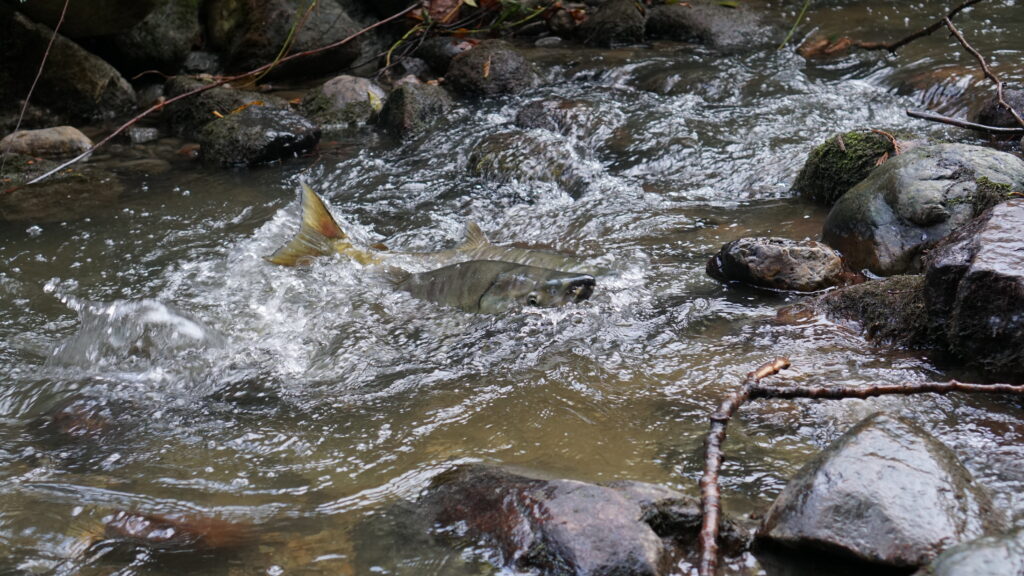
New research confirms that Tsleil-Waututh Nation has consistently and sustainably fished for chum salmon for 1,200 years longer than the archaeological record had previously demonstrated.
This supports Tsleil-Waututh knowledge and further demonstrates that Tsleil-Waututh people have been sustainably living on and stewarding their traditional territory for longer than Western science may recognize.
Researchers from Tsleil-Waututh Nation and UBC analyzed 245 salmon bones gathered as part of an archaeological dig in the 1960s and 1970s from təmtəmíxʷtən, a large and important site for the Nation located near what many British Columbians now know as Belcarra.
Extension of time
The research builds on a previous study which showed that the Nation sustainably and preferentially fished for chum salmon for 1,300 years.
Using carbon dating on eight new samples, the researchers extended this period of time a further 1,200 years, confirming Tsleil-Waututh ancestors fished for salmon from about 850 BC to 1650.
Old chums
They found that chum salmon were the most commonly fished, and were caught consistently over the entire period. This consistency and the fact that chum are particularly sensitive to overfishing both point to a sustainable chum fishery under Tsleil-Waututh Nation stewardship, says co-author Michelle George.
Lessons to learn
The research points to the lessons to be learned from Tsleil-Waututh Nation stewardship, including around sustainable, selective salmon fisheries that focus not on extraction but on long-term ecosystem health, says first author Meaghan Efford, a doctoral candidate in the UBC Institute for the Oceans and Fisheries.
Read more about the research on the Tsleil-Waututh Nation blog.
Paper: Archaeology demonstrates sustainable ancestral Coast Salish salmon stewardship over thousands of years was published in PlosOne.
Tags: Aboriginal fisheries, archeology, Indigenous fisheries, Indigenous Knowledge, IOF students, Research, salmon, Tsleil-Waututh Nation